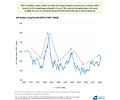Peak US Dollar, Google's Degrading Culture, Levelling Up, & Keeping Things Simple
Market Talk, Edition 69, February 19th 2023
Once every second Sunday I will curate the most interesting things I have consumed during the previous two weeks. These will be bucketed into 5x must-reads and honourable mentions.
Investment Talk goes out to over 18,600 investors and is a reader-supported newsletter. If you enjoy the content and would like to support the newsletter, you can do so here. Fewer than 0.1% cent of readers currently support the newsletter.
AlphaSense: Free Trial of an Expert Transcript Call Network
But first a word from this issue’s sponsor, Stream by AlphaSense. With Stream, you get access to the market's fastest-growing library of expert interviews with former executives, customers, competitors, and channel participants across a breadth of industries. Stream is for analysts and portfolio managers, who want to improve their time-to-decision with a more efficient and cost-effective way to gather qualitative insights about their target companies.
The best part is that everyone is eligible for a 14-day free tri…



